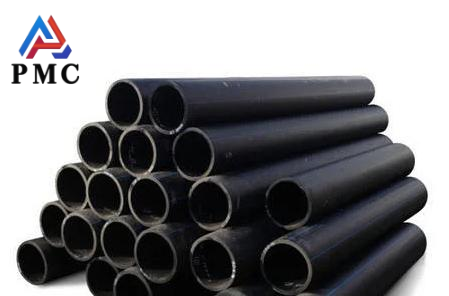Carbon steel tube, as the name suggests, is mainly composed of iron and carbon. It is an iron-carbon alloy pipe. Its carbon content is generally between 0.0218% and 2.11%, and sometimes a small amount of manganese and other elements are added to improve performance. During manufacturing, steel billets are first obtained through steelmaking and continuous casting, and then hot rolling or cold drawing processes are performed to finally make carbon steel pipes of various specifications.
Carbon steel tubes have many excellent properties. It has high strength, including tensile strength and yield strength, can withstand greater pressure and load, and is not easily deformed, which allows it to work stably in some environments with high strength requirements; Good welding performance makes engineering installation and connection easier and more convenient, which can effectively improve construction efficiency; Although its corrosion resistance is not as good as that of stainless steel, it also has a certain corrosion resistance after surface treatment such as galvanizing. Moreover, the production cost of carbon steel pipes is relatively low and cost-effective. While meeting the use needs, it can also save costs for enterprises. This is one of the important reasons why it is widely used.
Application areas of carbon steel tubes in industry
- Petrochemical Industry
In the extraction and transportation of oil and natural gas, carbon steel tubes are the key pipeline materials for transporting oil and gas. From the oil field’s mining site, to the subsequent gathering and transportation stations, and then to the long-distance transmission trunk lines, carbon steel tubes are responsible for transporting oil and gas resources safely and efficiently to various processing and use locations. In the chemical industry, various corrosive chemical raw materials, such as sulfuric acid and hydrochloric acid, are often transported through carbon steel tubes that have undergone special anti-corrosion treatment to ensure the continuity of the chemical production process.
- Power Industry
In power production scenarios such as thermal power plants and nuclear power plants, carbon steel tubes are used to transport media such as steam and water. For example, in the boiler system of a thermal power plant, high-temperature and high-pressure steam needs to be transported from the boiler to the steam turbine through carbon steel tubes to drive the turbine to rotate, thereby realizing the conversion of thermal energy into electrical energy. In nuclear power plants, circulating water used to cool reactors is also transported by carbon steel tubes to maintain stable operation of the reactors.
- Machinery manufacturing industry
Carbon steel tubes are important materials for manufacturing various mechanical equipment parts. For example, the transmission shafts of some large machinery and the oil pipes of hydraulic systems are often made of carbon steel pipes. The transmission shaft needs to have high strength and toughness to withstand the torque and impact during mechanical operation, and carbon steel tubes can just meet this requirement; Hydraulic oil pipes are required to have good sealing performance and pressure resistance, and carbon steel tubes can also do the job well.
Advantages of carbon steel tubes
- High strength and durability
In terms of composition, it is mainly composed of carbon and small amounts of other elements, which gives it excellent tensile strength and hardness. Carbon steel tubes, with their high strength, can stably complete transportation tasks and ensure the normal supply of energy. The high hardness and non-deformation characteristics of carbon steel tubes ensure the structural safety of ships during long-term use.
- Good processability
In actual industrial production, it is often necessary to process pipes into various specific shapes and sizes according to different engineering requirements. Carbon steel tubes perform very well in this regard. They are easy to cut, process and weld.
- Good corrosion resistance
Although carbon steel tube itself is not completely corrosion-resistant, it can effectively resist the erosion of most chemicals and environments through a series of reasonable anti-rust treatment and coating measures.
- Excellent thermal conductivity
Carbon steel tubes have the property of conducting heat quickly, an advantage that makes them ideal for use in industrial equipment involving heat transfer.
Conclusion
Carbon steel tubes play an extremely important role in many industrial fields such as petrochemicals, electric power, and machinery manufacturing due to a series of outstanding advantages such as high strength, durability, good machinability, good corrosion resistance, and excellent thermal conductivity. They are an indispensable key material in industrial production. With the continuous development and progress of industrial technology, higher requirements are also put forward for the performance and quality of carbon steel tubes. In the future, carbon steel tubes will continue to play an important role in the industrial field, promote the continuous development of various industries, and provide solid support for the process of industrial modernization.
Read more: Factors affecting the Service Life of Carbon Steel Pipes

Leave a Reply
You must be logged in to post a comment.